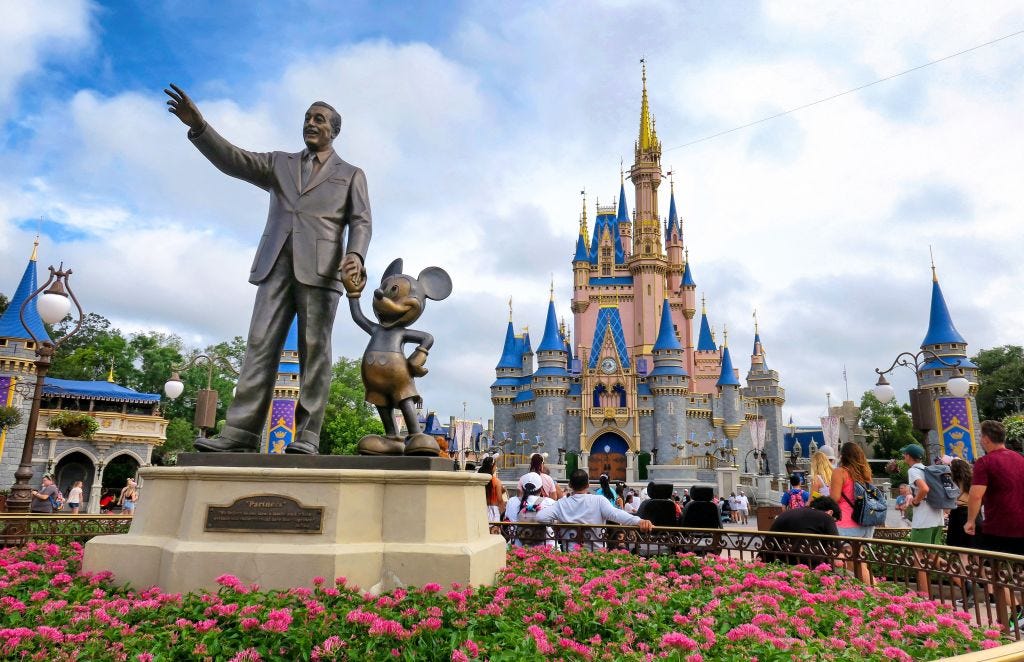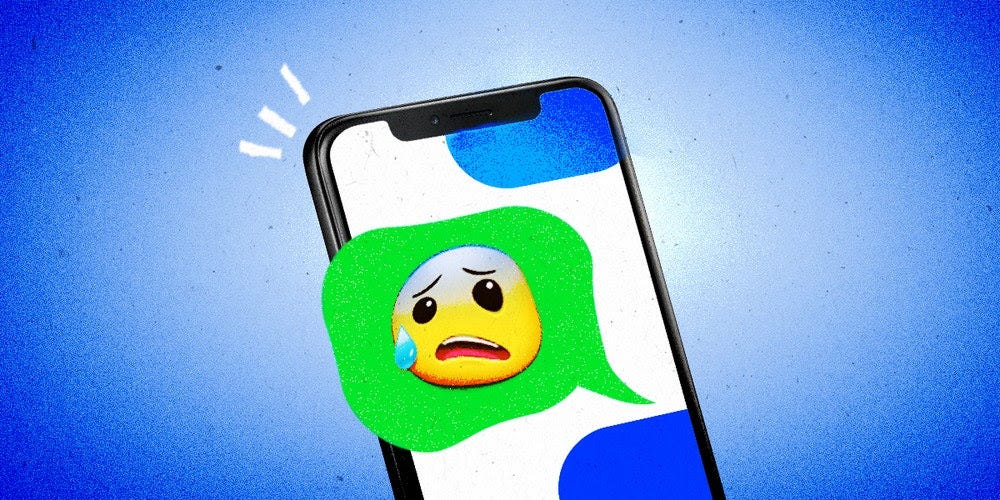- This post originally appeared in the Insider Today newsletter.
- You can sign up for Business Insider's daily newsletter here.
Big BI news: We won our first National Magazine Award last night! It was for our impactful video on how dogs are used in prisons — which also recently led to a new law in Virginia. Congrats to everyone who worked on this important piece of journalism.
As for the newsletter, in today's big story, we're breaking down Disney's big proxy fight.
What's on deck:
-
Markets: Billionaire Ray Dalio makes the case for continuing to invest in China.
-
Tech: The psychology behind Apple's "green bubble" trick that makes the iPhone feel "cool."
-
Business: Elon Musk's no good, very bad year.
But first, who ya got?
If this was forwarded to you, sign up here.
The big story
House of Mouse showdown

Disney is all about imagination — dubbing some employees "Imagineers" — but some investors are imagining the iconic company being run differently.
Activist investor Nelson Peltz's proxy fight against Disney for two seats on the company's board comes to a head at its annual shareholder meeting today. Business Insider's Madeline Berg has a complete rundown of how we got here.
Today's vote is about a lot more than just two board seats. It's about the future of one of America's most iconic companies. It's about the state of the media and entertainment industry, in which Disney plays a pivotal role. And it could reshape how Disney CEO Bob Iger, who's less than two years into his second stint at the company, might ultimately be remembered.
Such an ambitious battle doesn't come cheap, as BI's Peter Kafka pointed out. The total amount spent between Disney and its rivals wrangling votes is estimated to be at least $70 million, a record for a proxy fight.
One reason it cost so much, and why this vote is so unique, is the makeup of Disney's investor base.
Winning the vote isn't just a matter of convincing large investment firms with sizable positions to vote your way. Although, big players matter, too, BI's Grace Eliza Goodwin writes.
Almost 40% of Disney shares are owned by individuals, which means both sides need to get more creative in their approach. Disney, for example, used Pinocchio in one investor presentation.

So, where is this all headed?
Disney was in good shape earlier in the week, holding a lead with more than half of the votes shared, according to a report from The Wall Street Journal on Monday. BlackRock and T. Rowe Price were reportedly both planning on backing Disney.
But the fight has been closer than Disney would have liked. And Peltz's Trian Partners reportedly has its own powerful allies (Neuberger Berman, the California Public Employees' Retirement System, and proxy advisor ISS). Peltz previously told the Financial Times that he wouldn't look to fire Iger if he wins a seat, but also hinted at changing management in some entertainment divisions.
It's also unclear what Trian, which controls about a 1.8% stake in Disney, would do if it loses its fight. But even in failure, Trian has elicited change. DuPont defeated Trian in a proxy battle in 2015, but its CEO stepped down later that year and the company sped up cost-cutting plans.
It shows the lose-lose situation that proxy battles can sometimes become. Activist campaigns meant to garner support for their cause ultimately expose weaknesses in companies they're invested in.
3 things in markets

-
Stocks keep climbing on the hopes of a rate cut that hasn't come yet, and that's a problem. Stocks have rallied since October on the belief that interest rate cuts were coming, despite delays from the Fed. The growing divide between reality and expectation could spell trouble for investors, according to JPMorgan.
-
Ray Dalio makes the case for why he's still investing in China. The billionaire founder of Bridgewater Associates believes it's a good time to buy Chinese equities despite so many market watchers' pessimism. For Dalio, the issues in China are manageable, as long as Chinese leaders are "smart and courageous," he wrote in a LinkedIn post.
-
The IPO market is finally starting to warm up. Reddit, Astera Labs, and Arm Holdings have all made successful trading debuts in recent months. That's a sign there's upside in the stock market as a risk-on environment starts to pick up steam, LPL Financial strategists Quincy Krosby and Jeffrey Buchbinder said.
3 things in tech

-
Why do we even care about green text bubbles? On iPhones, texts from non-Apple phones register in a gray and green color palette that's been derided by Apple fans. It's a clever marketing trick the company has used to position its product as the "cool" phone.
-
How to land a job at Nvidia. A software engineer at the chip company explains how he got the job, how much he makes, and what prospective employees can do to nail the challenging interview process.
-
Microsoft's poaching has made hiring tough for Inflection. The tech giant snapped up Inflection's cofounders and most of its staff last month, leaving the AI startup a shell of its former self. One recent hire was "spooked" by the news, per an internal email obtained by BI.
3 things in business

-
Elon Musk is having a terrible year. Tesla's delivery numbers slumped on Tuesday amid a "nightmare" quarter. The EV slowdown is taking a toll on the company — and analysts say Musk's reputation may not be helping. And that's saying nothing of his troubles with X and OpenAI.
-
Inside Y Combinator's new college campus-inspired HQ. Last year, the startup accelerator moved its headquarters from Mountain View to the historic shipyard at Pier 70. Then, in January, it expanded to 60,000 square feet by moving into the building next door.
-
It's still not easy to get paid as a college athlete. To learn more about so-called NIL deals, BI sat down with Florida State University defensive lineman Braden Fiske, who's projected to make millions if he is drafted into the NFL in April. He advises students to network and learn to say no to offers.
In other news
-
Exclusive: Electronic prescribing giant Surescripts is exploring a sale.
-
Meta tried to 'build a clone of Snapchat' using data from Onavo, unsealed court documents show.
-
Instagram is 'testing' new cash bonuses that pay creators to post engaging photos, reels, and more.
-
Jeff Bezos snaps up a 3rd Miami-area mansion for $90 million.
-
How many users does Donald Trump's social media company have? He won't say.
-
Jon Stewart says Apple asked him not to let FTC chair Lina Khan appear on his Apple podcast.
-
Dollar stores are supposed to do well regardless of the economy. Turns out, that's not true.
-
Tesla's bulked-up Cyberbeast truck is about to head for public auction — take a look.
What's happening today
-
The Walt Disney Company's annual meeting will be held today.
-
Haiti's state of emergency is due to expire.
The Insider Today team: Dan DeFrancesco, deputy editor and anchor, in New York. Jordan Parker Erb, editor, in New York. Hallam Bullock, senior editor, in London. George Glover, reporter, in London.

